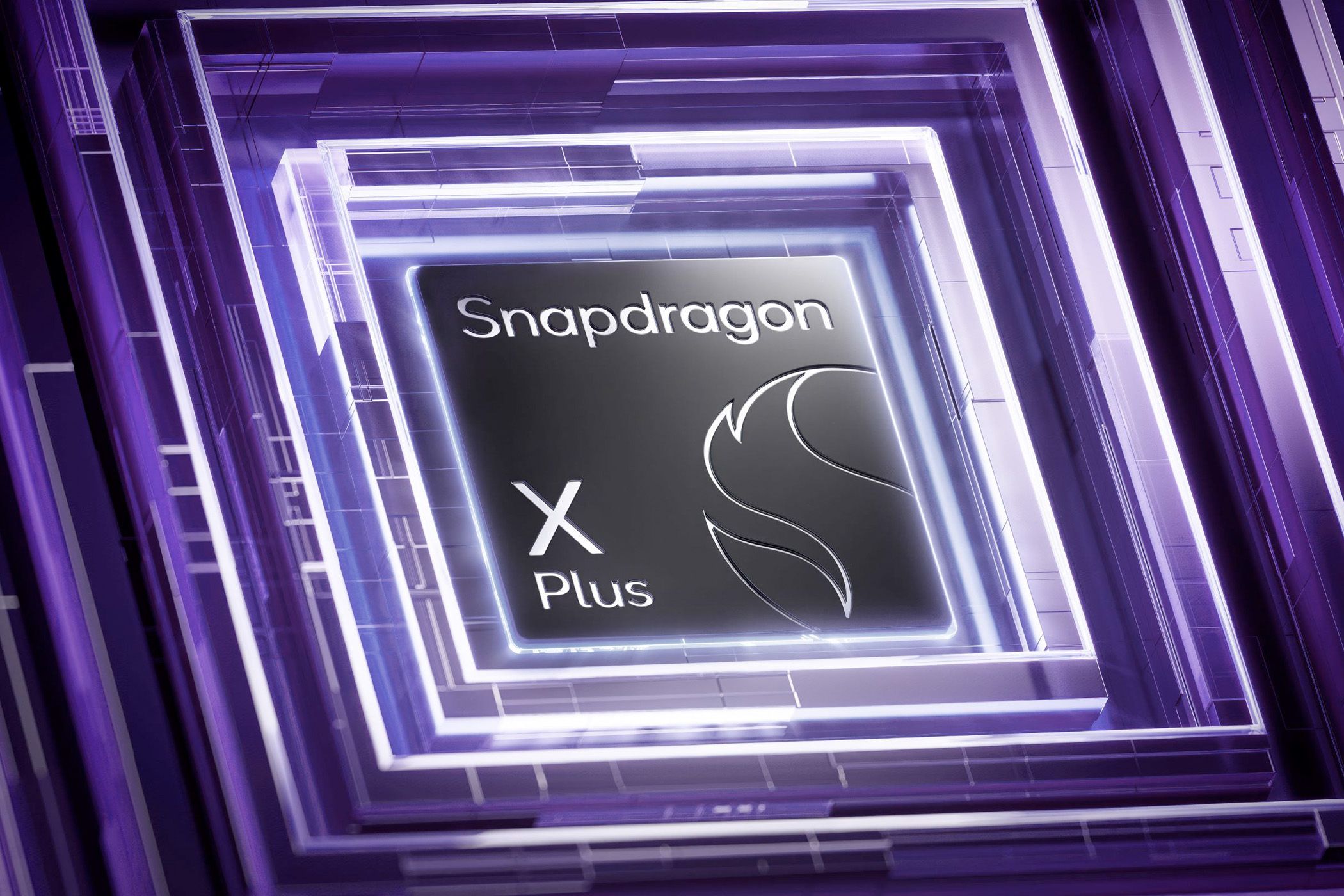
The first PC laptops with Qualcomm’s Snapdragon X Elite chips arrived a few months ago, and even though they’re not perfect, they offer fantastic power efficiency and battery life. Qualcomm has now introduced a new chip for less expensive PCs: the 8-core Snapdragon X Plus.
Qualcomm just revealed the Snapdragon X Plus 8-core System-on-a-Chip (SoC), a new lower-end option in the company’s lineup of ARM-based chipsets. It sits below the existing 12-core Snapdragon X Elite and 10-core Snapdragon X Plus, which are used in laptops like the Surface Pro, Dell XPS 13, Surface Laptop, and Yoga Slim 7x. The new chip is expected to be used in laptops that cost between $700 and $900.
There are actually two versions of the 8-core Snapdragon X Plus. The X1P-42-100 is the lowest-end option, with an 8-core Oryon CPU, a maximum multi-core clock speed of 3.2 GHz, an Adreno GPU with up to 2.1 TFLOPS. There’s also the slightly-better X1P-46-100, with a maximum clock speed of 3.4 GHz, and a GPU that can do 2.1 TFLOPS. The chips are otherwise mostly identical, with the same 45 NPU TOPS performance for AI tasks, maximum memory speed of 8448 MT/s, 8 CPU cores, and 30 MB CPU cache.
Qualcomm said in a press release, “An integrated GPU and support for up to three external monitors ensures exceptional graphics and immersive visual experiences. At the heart of the Snapdragon X Plus 8-core is a powerful 45 TOPS NPU of AI processing power and leading performance per watt which, paired with the platform’s significant advancements in connectivity, will push productivity to new heights in ultra-portable designs with incredible battery life.”
Several PC makers have already announced laptops with the new chip, such as the ASUS Vivo S 15, Acer Swift Go 14, and ASUS ProArt PZ13 2-in-1 convertible tablet. There will likely be more announced over the coming months, too. Unfortunately, it doesn’t seem like there are any (mainstream) desktop PCs with Snapdragon chips yet—a Snapdragon-powered mini PC could be a great low-power productivity desktop or home server.
Source: Qualcomm
Source link

